- Cookies that enable provisioning of services you require.
- Cookies that inform NIC.LV about your visit on the website www.nic.lv - your consent is necessary for use of these cookies.
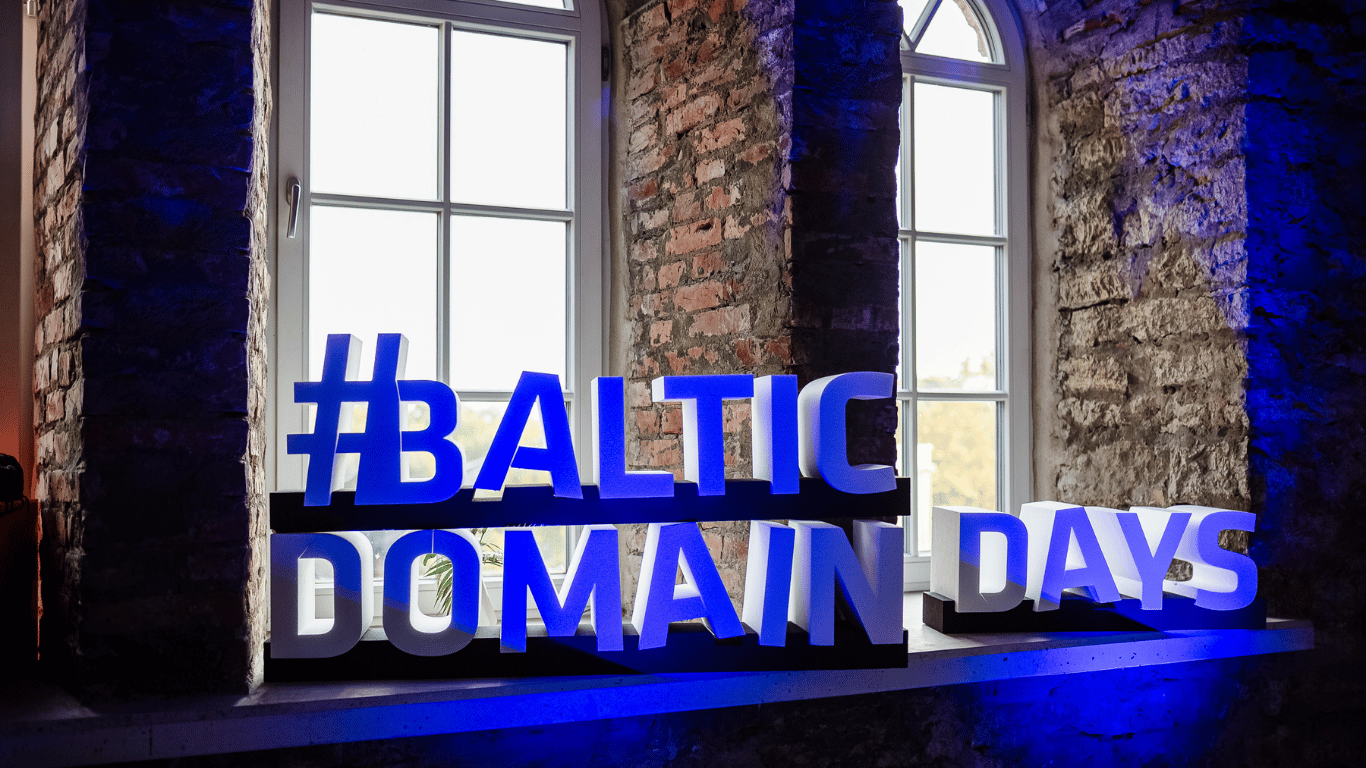
Baltic Domain Days 2025 took place on October 7–8 in Tallinn, gathering domain industry professionals, government officials, and entrepreneurs from across the Baltics and beyond. Over two days, the conference explored topics ranging from digital identity and cybersecurity to artificial intelligence and innovation in the domain space.
The first day focused on the development of national domains, digital governance, and market trends. Participants presented the latest updates, innovations, and security solutions from Estonia, Latvia, and Lithuania, representing the Baltic ccTLDs (.EE, .LV, .LT). Regional and global domain market data were also analyzed.
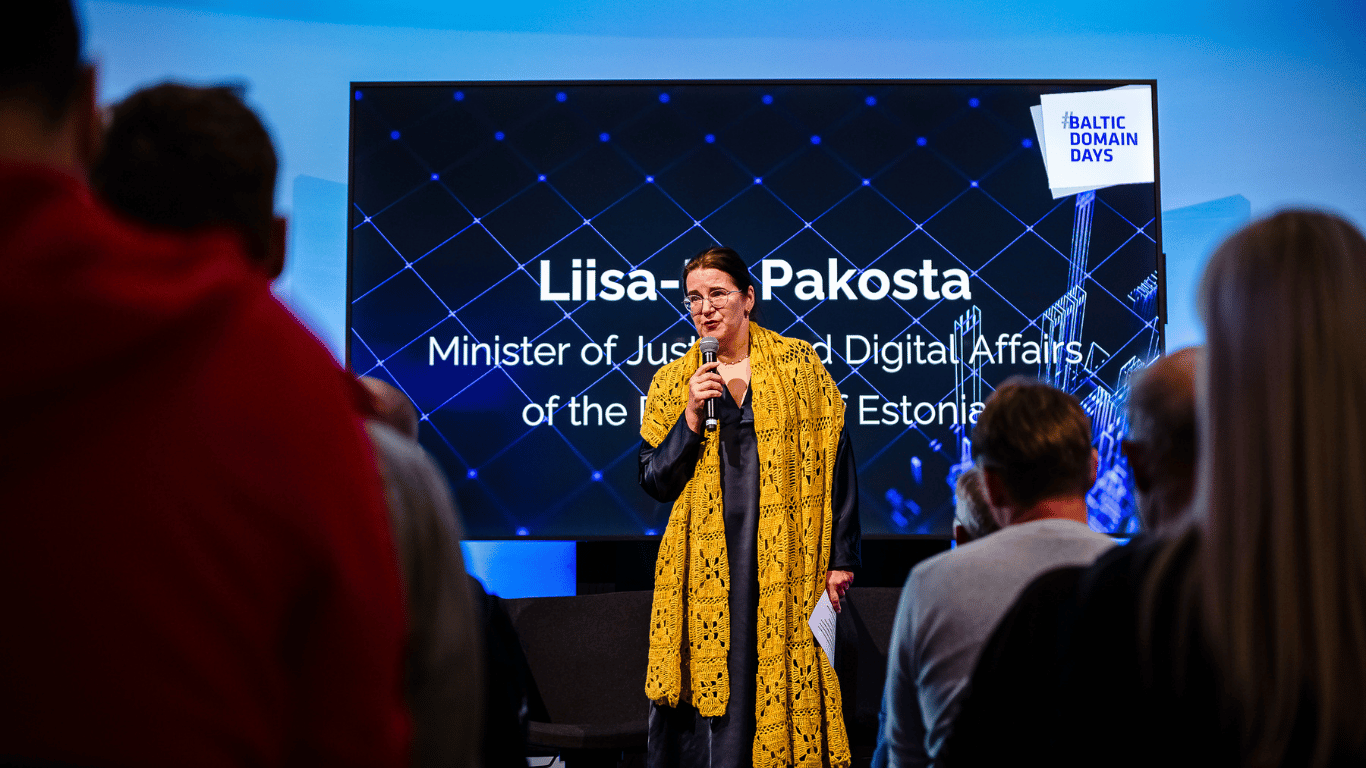
The conference was opened by Liisa-Ly Pakosta, Estonia’s Minister of Justice and Digital Affairs. In her opening remarks, she emphasized the role of the Baltic states in building a digital society and the importance of national domains as symbols of trust and identity.
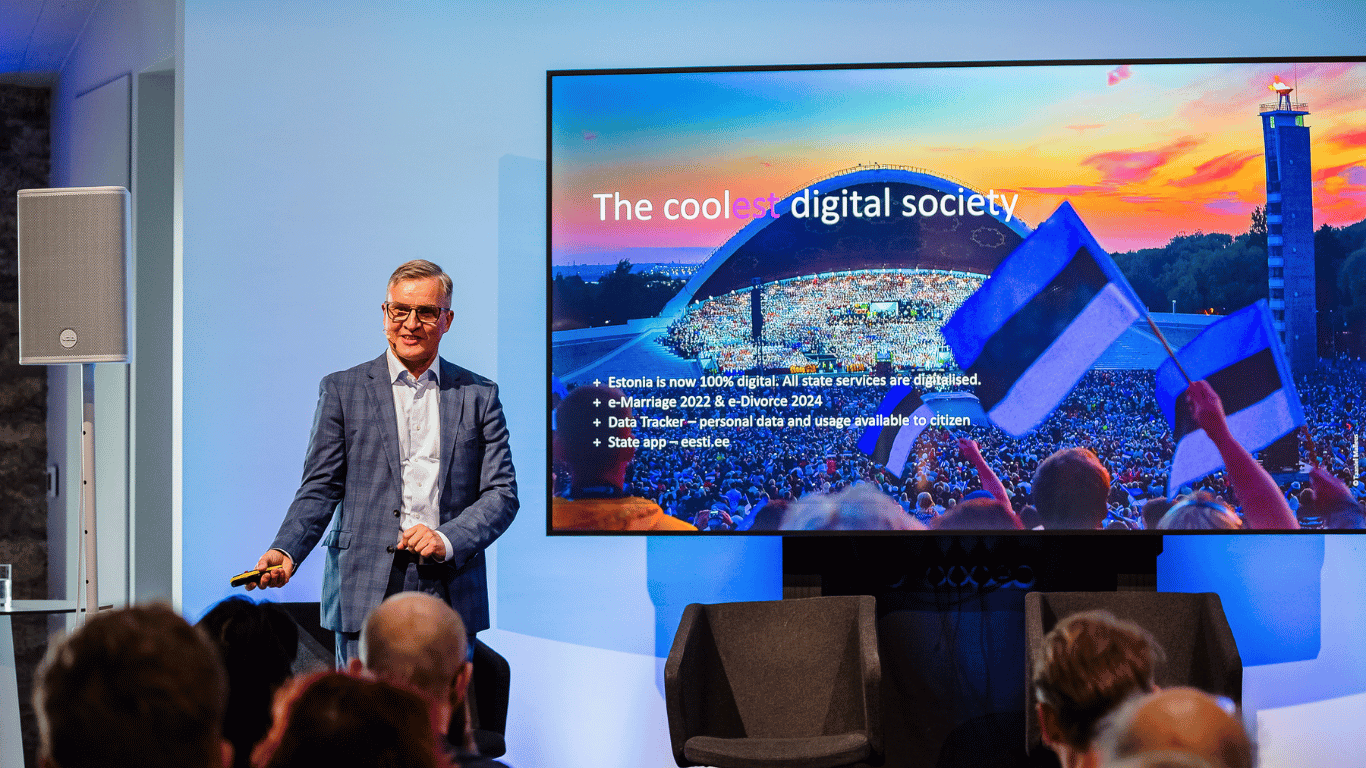
Speaker: Heiki Sibul, CEO of the Estonian Internet Foundation
Heiki Sibul presented Estonia’s latest achievements in digitalization. Estonia has become a fully digital nation — all public services are now available online. A special highlight was the eesti.ee platform, which allows citizens to manage e-prescriptions, receive notifications, check vehicle history, and use the “Data Tracker” function to see how public authorities use personal data. Estonia’s digital society is described as a “team sport,” involving cooperation among several institutions: the Consumer Protection and Technical Regulatory Authority, the State Police, CERT-EE, the Financial Intelligence Unit, the Security Service, the Prosecutor’s Office, and the courts. The most notable innovations include the .ee reservation system, a joint marketing program with a €50,000 budget, reduced domain dispute resolution fees, ISO 27001:2022 certification, and migration to AWS cloud services.
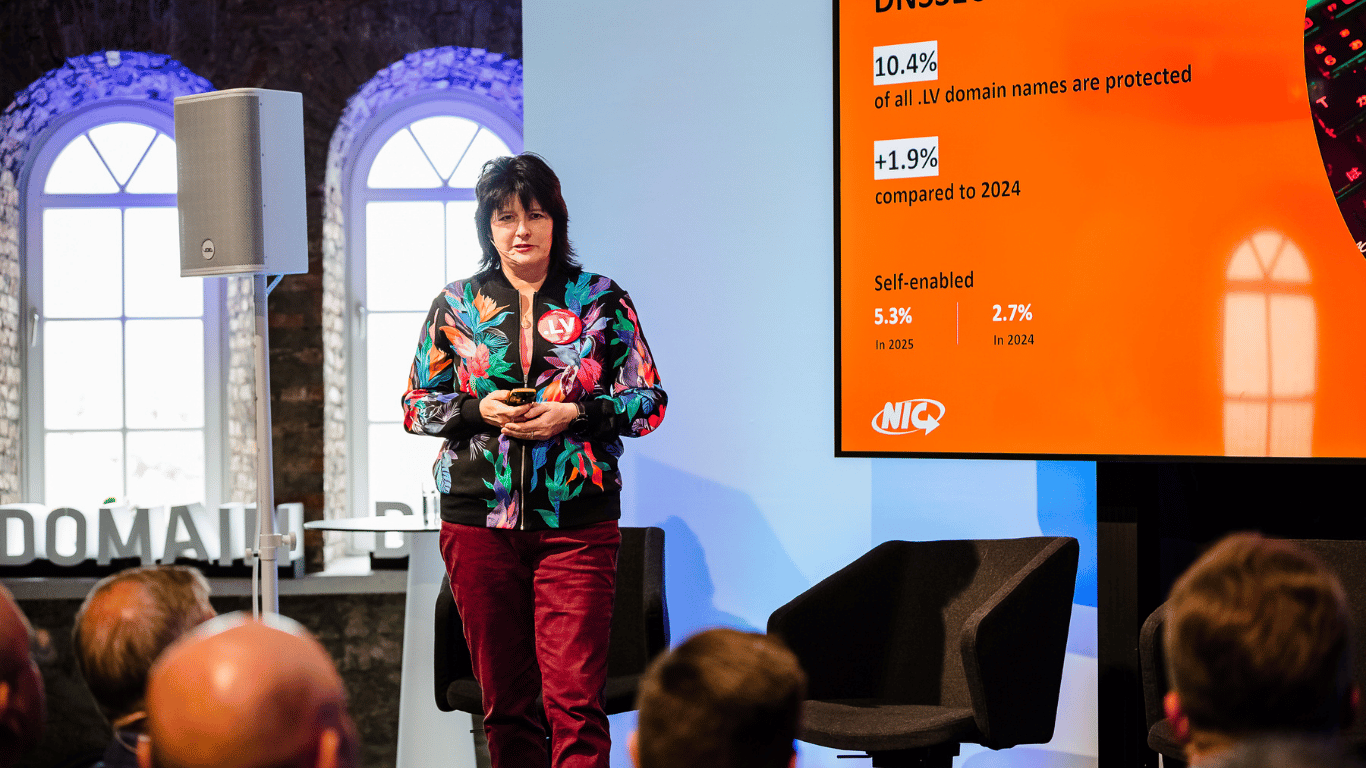
Speaker: Katrīna Sataki, CEO of NIC.LV
Latvia’s presentation focused on demonstrating the stability and reliability of the .LV domain zone. In 2025, the number of registered domain names continued to show moderate yet steady growth, reaching a 1% increase compared to the previous year. The renewal rate — 81.9% — remains high among domain registries. The number of DNSSEC-signed domains continues to grow slowly but steadily, increasing by 1.9% in 2025.
Katrīna Sataki emphasized that most .LV domain names (59%) are registered by legal entities, with the most active group being millennials (aged 29–44) and young entrepreneurs. Interestingly, new generic top-level domains (gTLDs), such as .click and .top, are also gaining popularity in Latvia. Among .LV registry updates, Sataki highlighted the DNS Firewall application developed and maintained in cooperation with CERT.LV, the introduction of an alternative dispute resolution service provided jointly with WIPO, and the implementation of AutoPay for domain renewals.
NIC.LV’s future strategy focuses on improving customer experience, efficiency, and strengthening security while maintaining a high level of trust in the national domain.
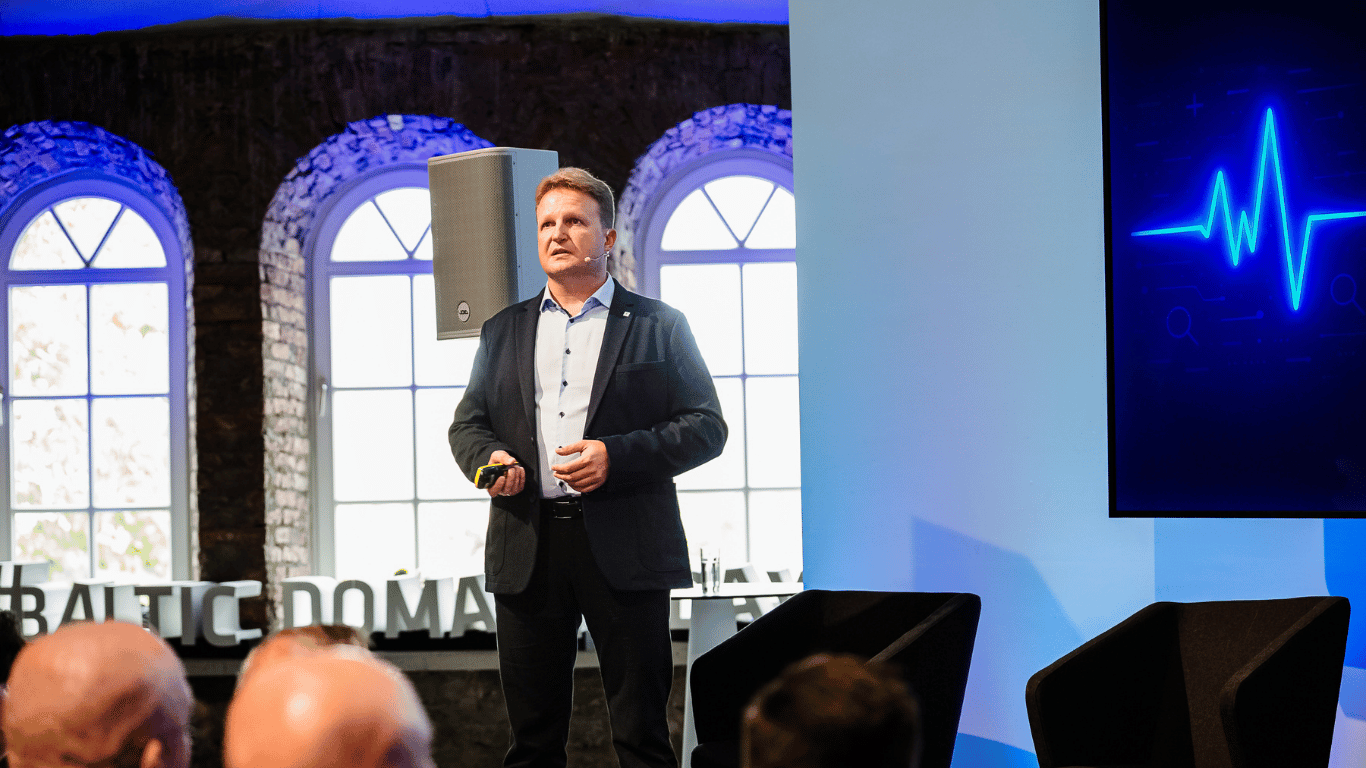
Speaker: Tomas Mackus, CEO of DOMREG.LT
DOMREG, operating under the Kaunas University of Technology, manages the .LT domain registry and DNS services. By 2025, around 247,000 domain names were registered (+3.4%), with an 86% renewal rate and a high share of local registrars. The number of DNSSEC-protected domains increased by 10%, while IDNs grew by 6%. From 2026, a slight increase in domain registration prices is planned. Lithuania is actively implementing the NIS2 Directive, which applies to registries, DNS service providers, and registrars. DOMREG also runs educational programs for students, businesses, and law enforcement institutions focusing on cybersecurity.
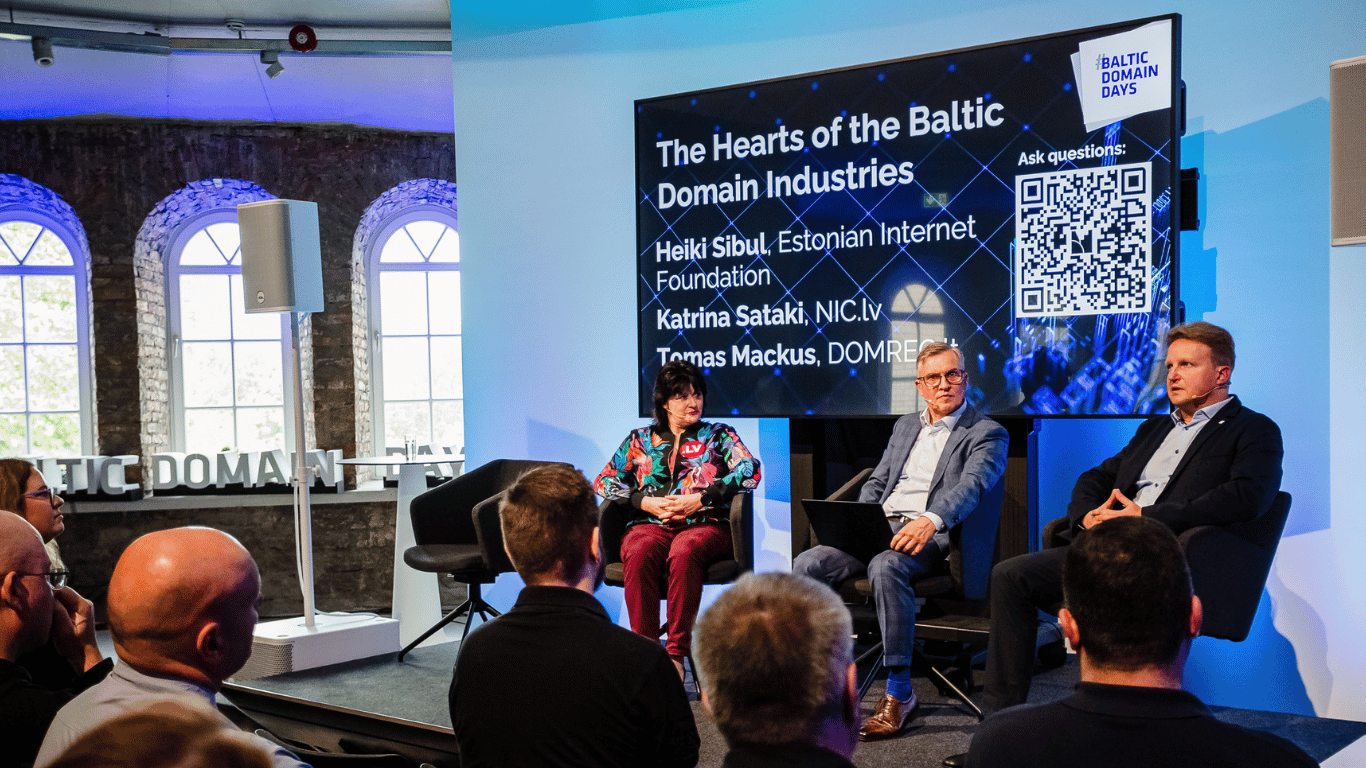
Participants:
Heiki Sibul (Estonian Internet Foundation)
Katrīna Sataki (NIC.LV)
Tomas Mackus (DOMREG.LT)
The discussion “The Hearts of the Baltic Domains” brought together representatives of the three Baltic national registries, who shared their experiences on how each country develops its domain name space and adapts to the evolving digital environment. The conversation was open and friendly, covering both common challenges and different approaches to solving them.
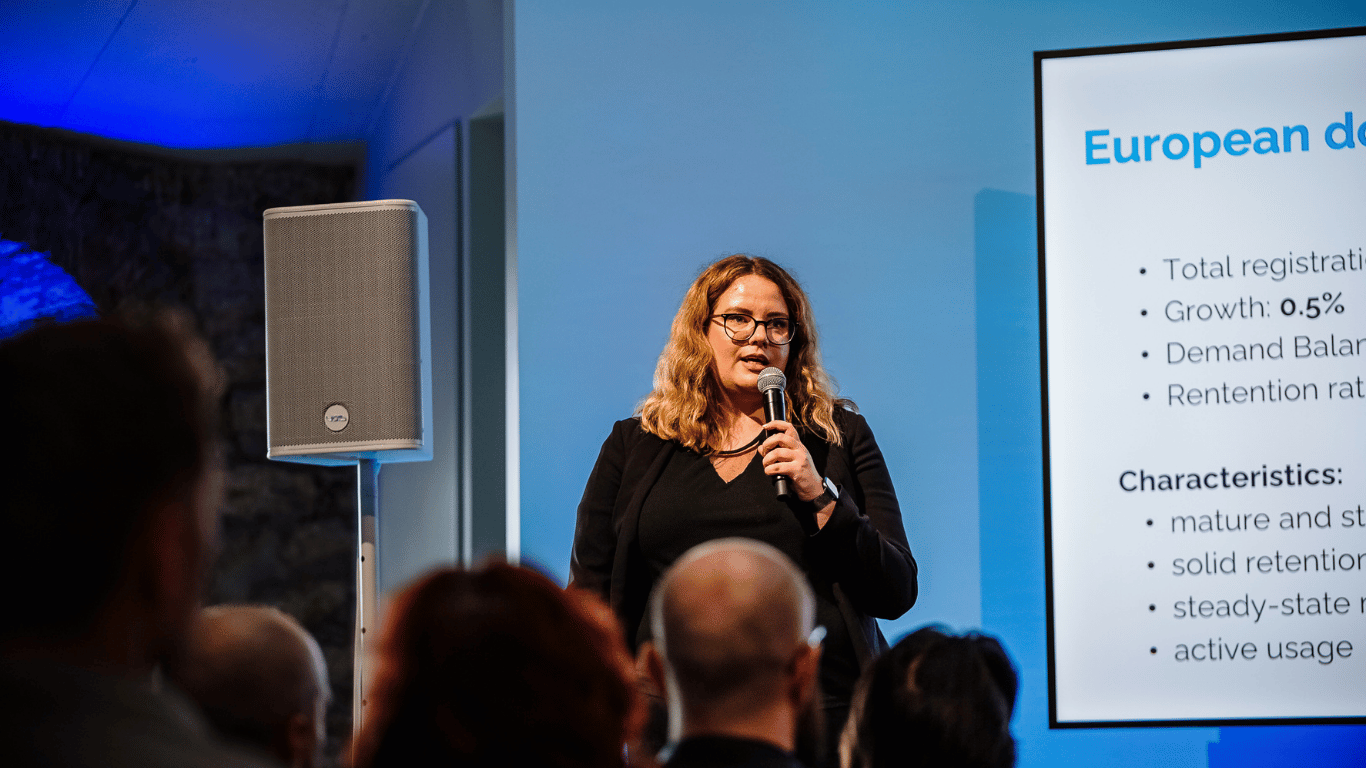
Speaker: Mare Vahtre, Estonian Internet Foundation
Mare Vahtre provided an extensive overview of the global and European domain market data. There are now more than 380 million registered domain names worldwide. Of these, .COM accounts for 42%, European country-code domains (ccTLDs, such as .LV, .EE, .LT) represent 20%, and general top-level domains (gTLDs, such as .NET, .ORG) 14%. The European market remains stable, with an 85.9% retention rate and modest but consistent growth.
Key insights:
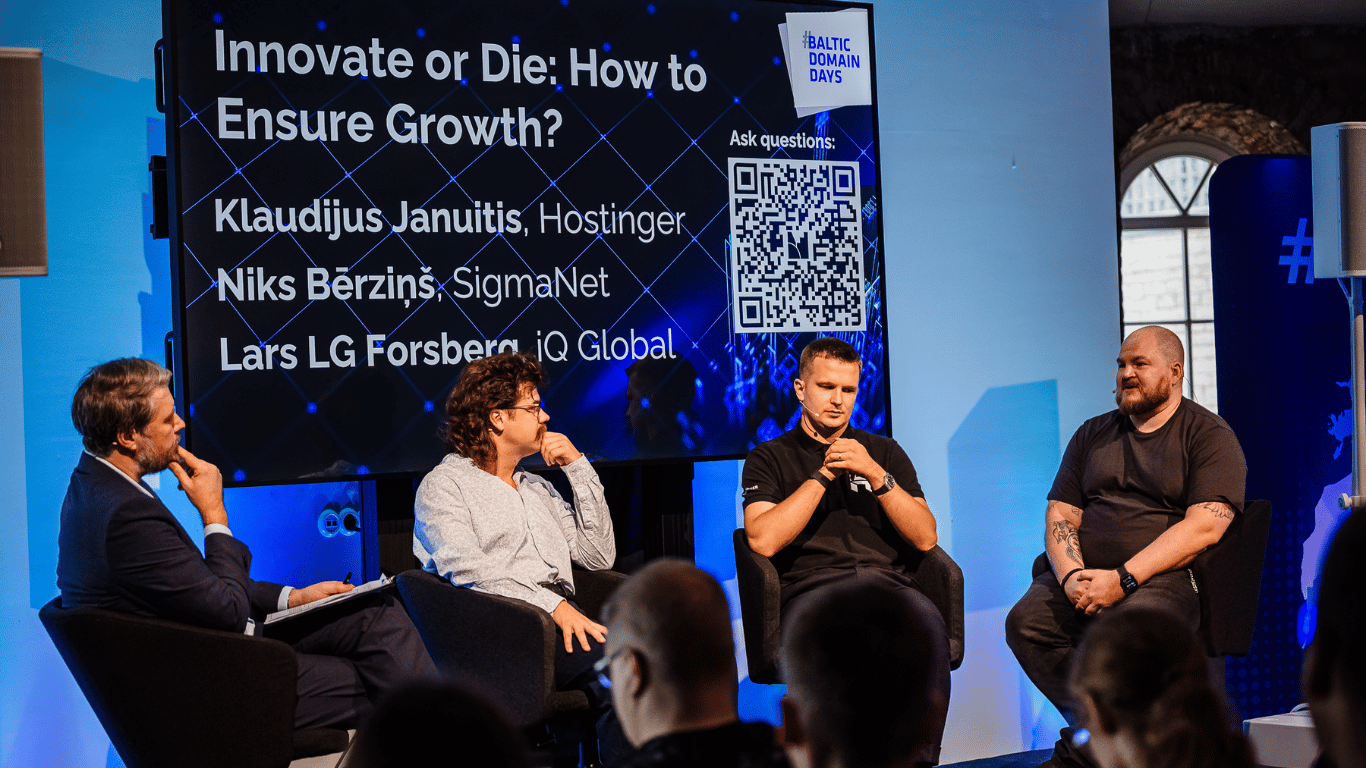
Panelists:
Klaudijus Januitis (Hostinger)
Niks Bērziņš (SigmaNet)
Lars LG Forsberg (iQ Global)
The panel explored how to ensure the growth and competitiveness of national domains in an increasingly saturated market. Experts agreed that the main obstacles are the pace of digitalization, lack of automation, and low engagement from the younger generation. Solutions include process automation, improved customer experience, closer collaboration between registries and public institutions, and the introduction of innovation at both product and service levels.
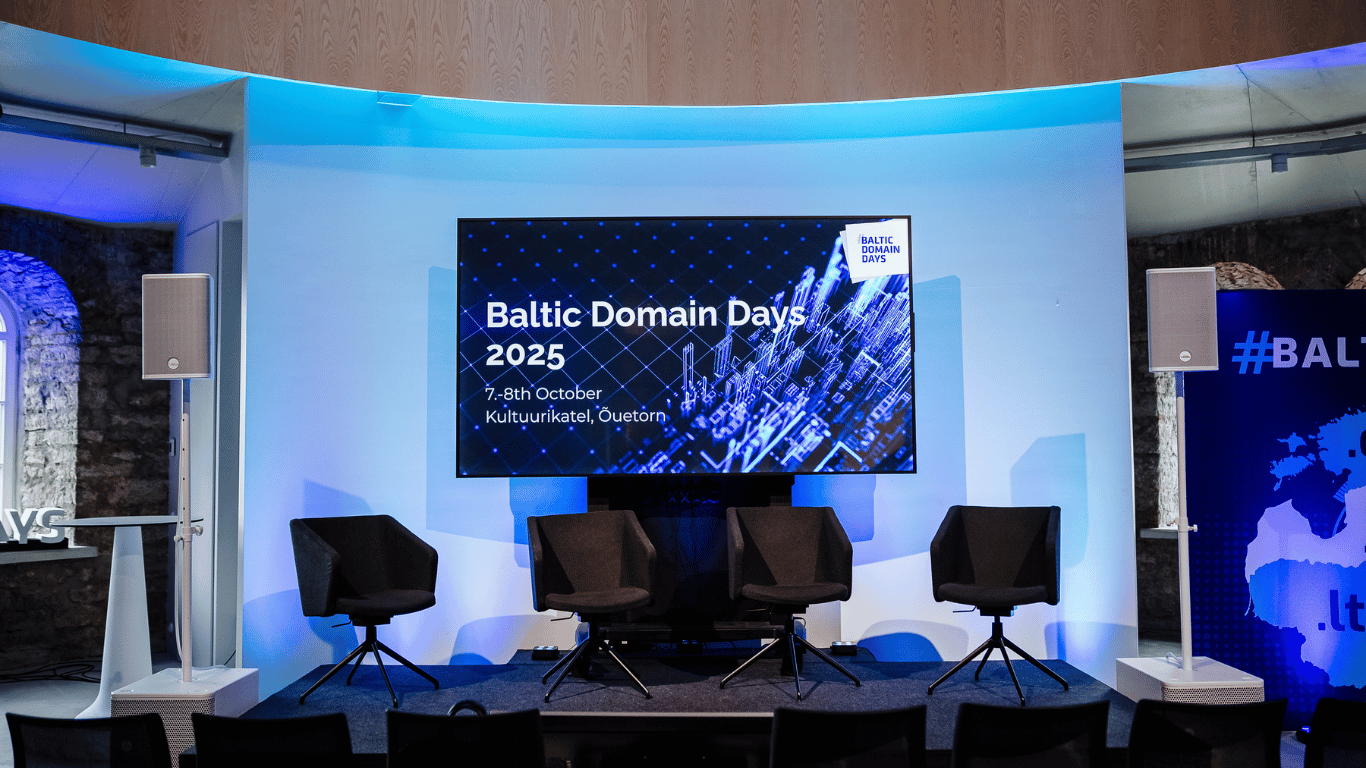
The second conference day focused on broader internet governance and security topics — from cloud monopolies to DNS security, AI, and EU digital policy.
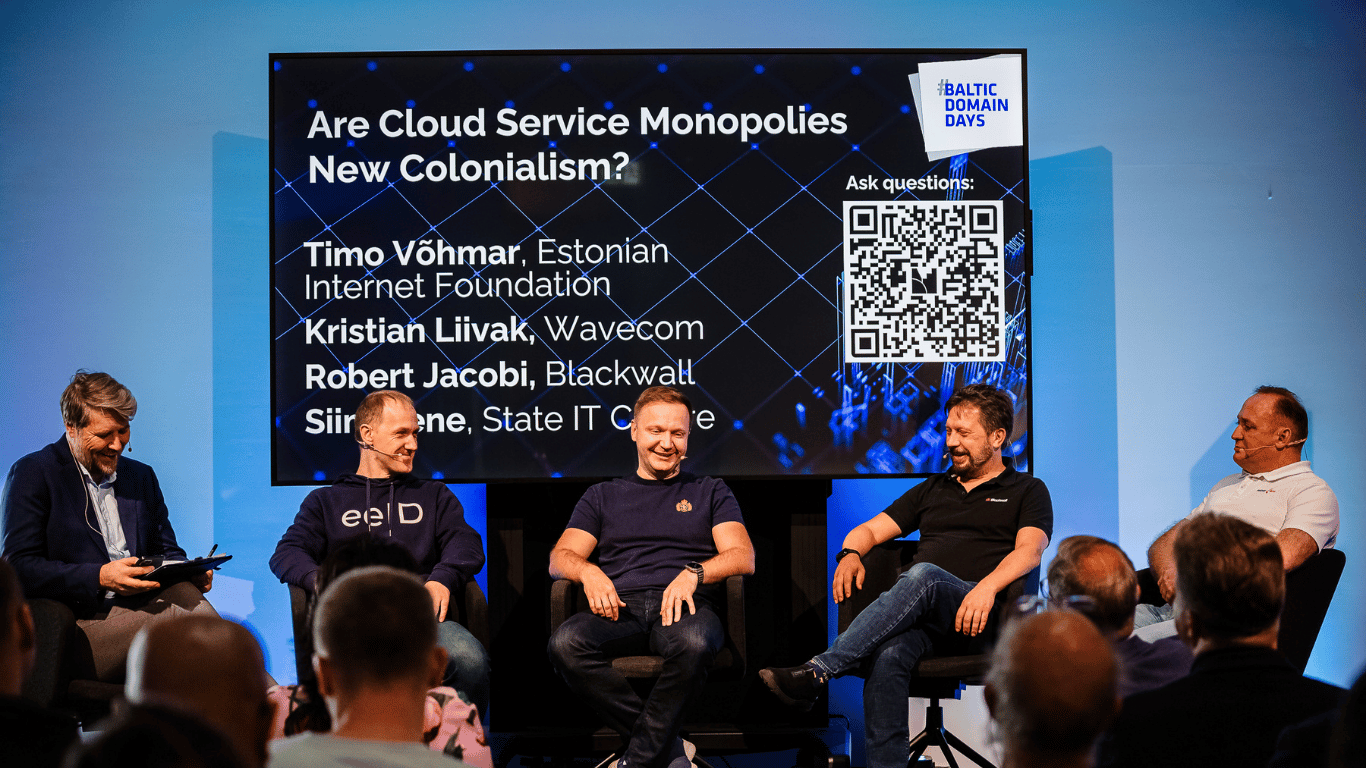
Panelists:
Timo Võhmar (Estonian Internet Foundation)
Kristian Liivak (Wavecom)
Robert Jacobi (Blackwall)
Siim Vene (State IT Centre)
The panel examined whether major cloud service providers could be seen as representatives of a new form of “digital colonialism.” Experts analyzed the risks of dependence on the infrastructure of a few global companies and discussed how regions like the Baltics can maintain digital sovereignty by developing local solutions, storing data within their jurisdictions, and building alternative cloud models. The discussion made it clear that there is no single correct answer, but one thing is certain: the coexistence of cloud and local solutions will be the reality of the future.
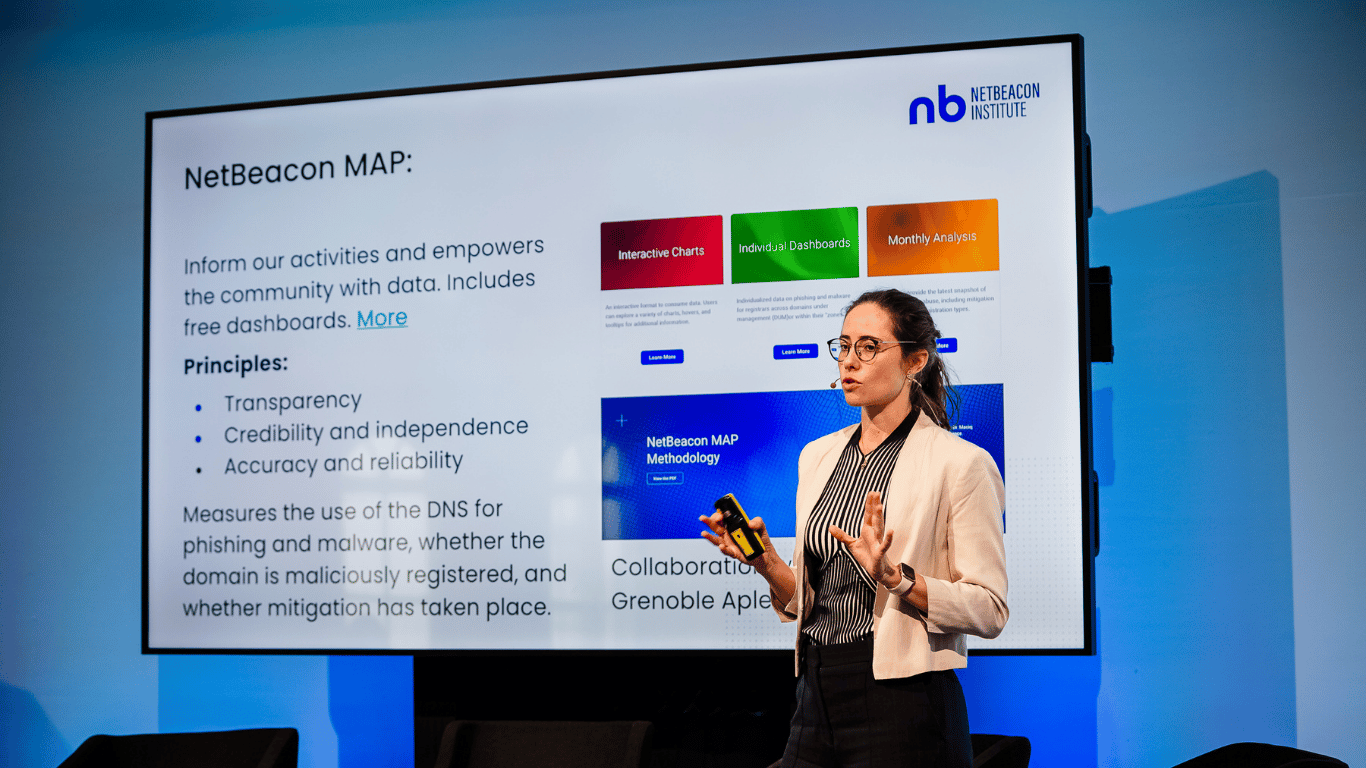
Speaker: Rowena Schoo (NetBeacon / Public Interest Registry)
Rowena Schoo presented a study on DNS security in the Baltic countries and introduced the NetBeacon initiative, which helps registries and registrars proactively combat phishing and malware distribution. The research showed that the Baltic domain zones — .EE, .LV, and .LT — are among the safest in Europe, with exceptionally low levels of malicious use. However, some rapidly growing registrars face risks related to insufficient verification mechanisms and a lack of customer education.
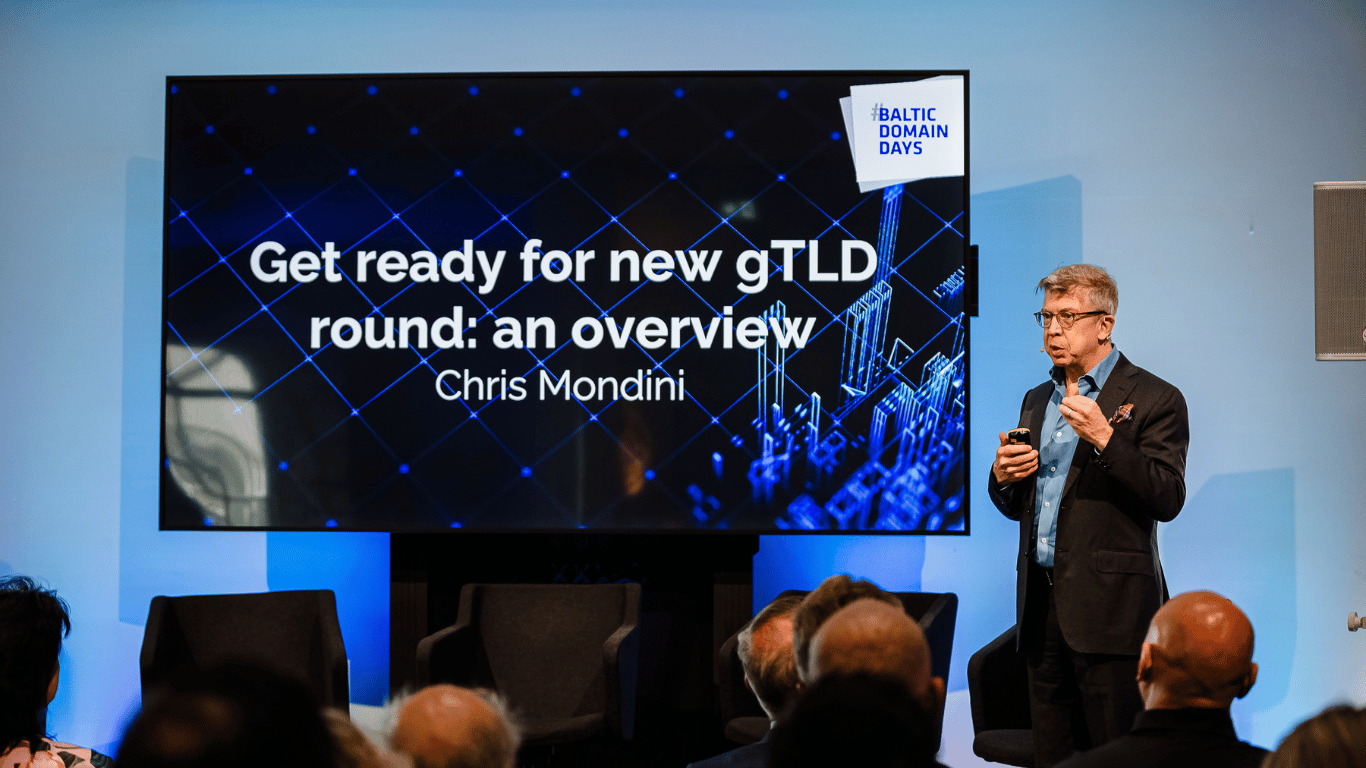
Speaker: Chris Mondini (ICANN)
Chris Mondini, representing the Internet Corporation for Assigned Names and Numbers (ICANN), presented the upcoming new round of generic top-level domains (gTLDs) set to open in 2026. He emphasized that this initiative will foster innovation, localization, and inclusiveness in the digital space. Mondini also discussed the new Registry Service Provider Evaluation Program, which ensures that new registries operate under high technical and security standards. He encouraged Baltic businesses and municipalities to use this opportunity to create local domains — such as .city, .brand, or .language — which could serve as platforms for innovation and cultural visibility.
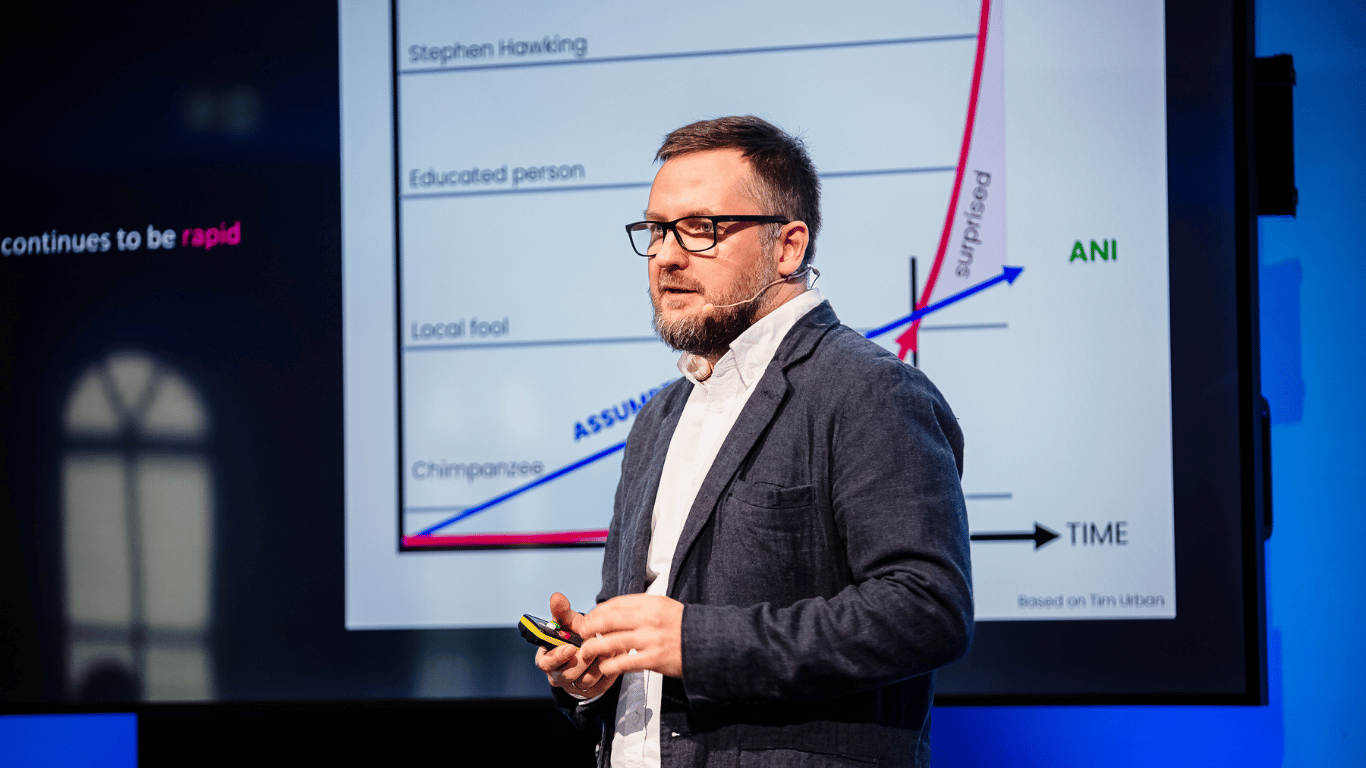
Speaker: Erki Pogoretski (Telia Eesti)
Erki Pogoretski, Head of Data Analytics at Telia Eesti, analyzed how artificial intelligence affects personal data protection and how the upcoming AI Act will change corporate responsibilities. He pointed out that technology is evolving much faster than legal frameworks, meaning that future data management requires not only technical security but also ethical responsibility. Pogoretski stressed the importance of transparency and human oversight in AI systems to prevent automated decisions without contextual understanding. “The AI we see today is the least capable it will ever be — from now on, it will only become smarter,” he said, emphasizing that this is the last moment when humans still control the direction of technological development.
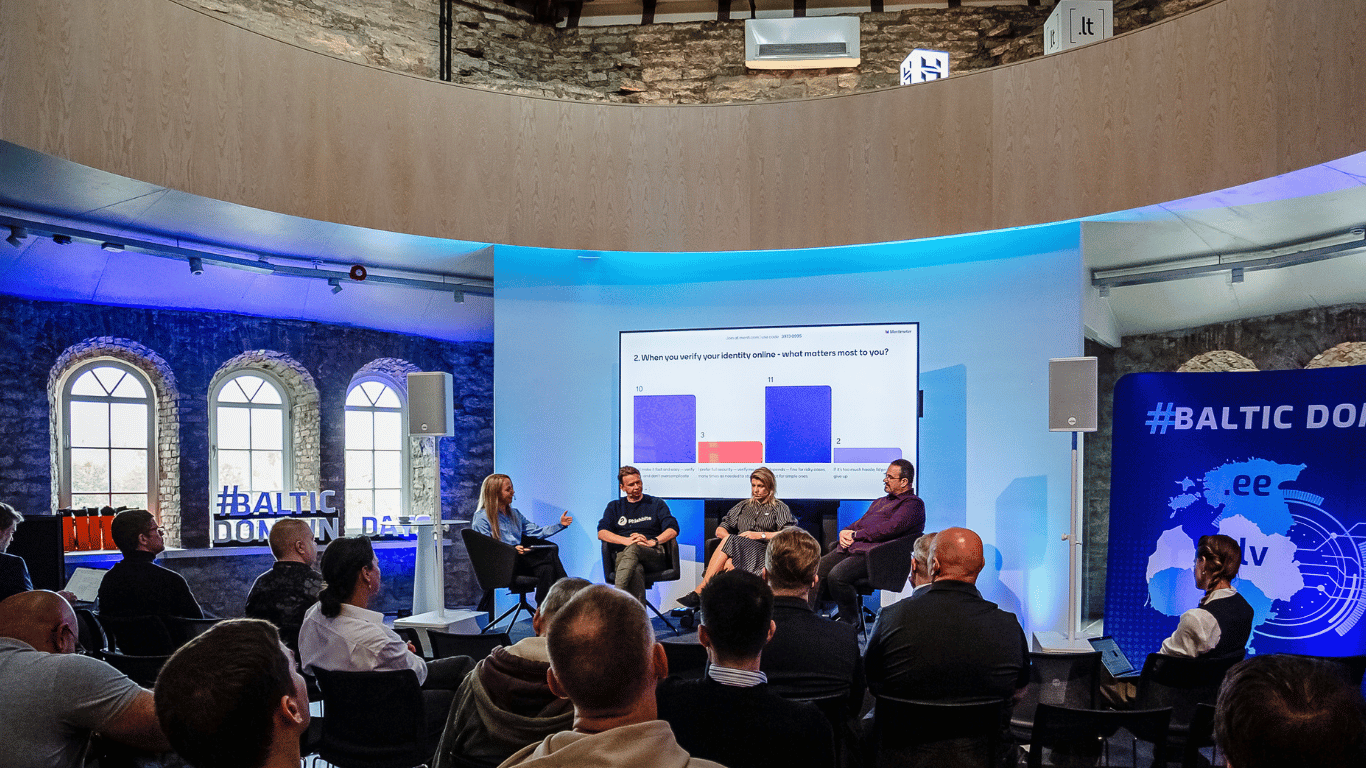
Panelists:
Helen Aaremäe-Saar (Estonian Internet Foundation)
Asta Mineike (EURid)
Urmo Keskel (Phishbite)
Sascha Kämpf (DENIC)
This discussion focused on the practical implementation of the NIS2 Directive (also known in Latvian as TID2). Participants shared experiences with the new security requirements now applied to top-level domain registries and DNS service providers. The conversation revealed that many companies are still searching for a balance between sufficient security and manageable simplicity.
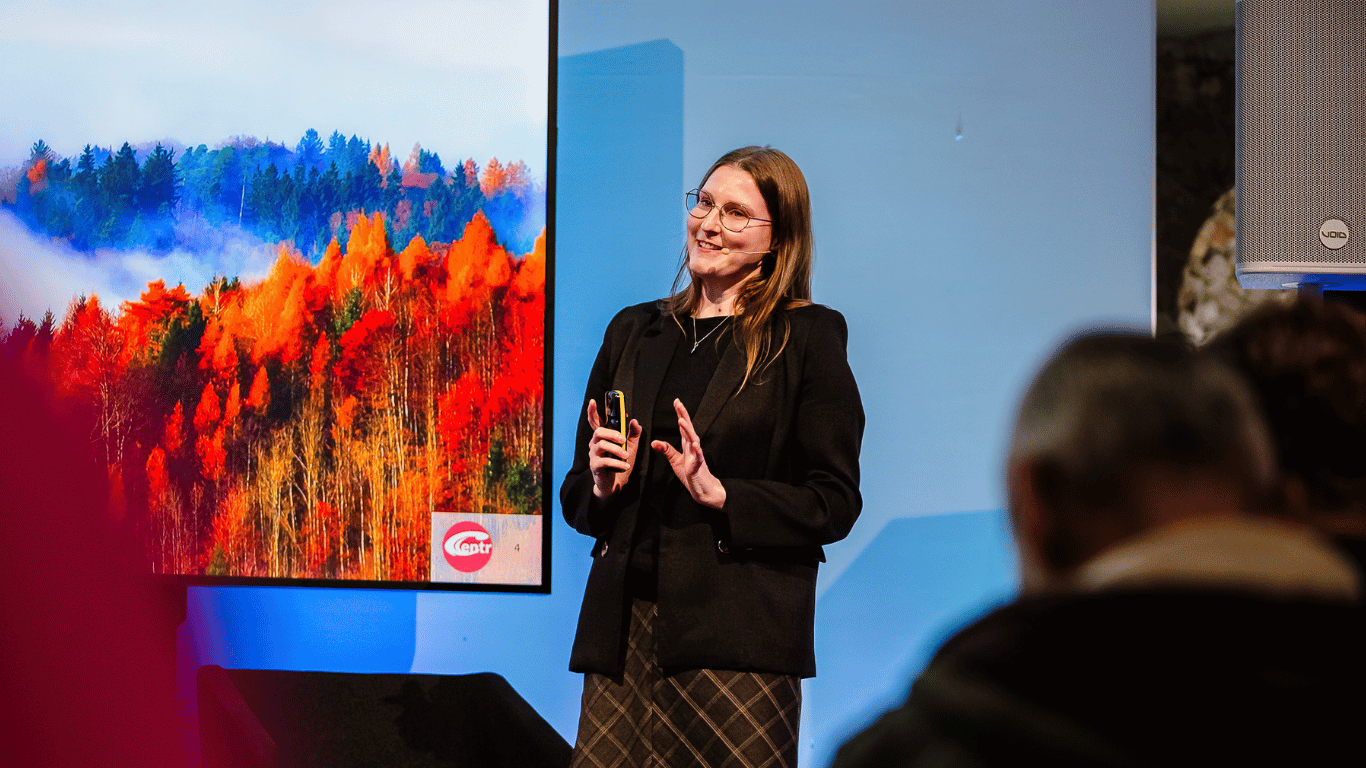
Speaker: Polina Malaja (CENTR)
Polina Malaja presented an extensive overview of the European Union’s new digital policies and their impact on the domain industry. She analyzed the NIS2 Directive, the DORA Regulation, and the forthcoming “Digital Omnibus Package,” which aims to simplify incident reporting systems and improve supervisory efficiency. Malaja noted that DNS is becoming a central element in the debate on Europe’s digital sovereignty — no longer just a technical matter, but a political one. At the same time, she warned that excessive regulation could hinder innovation, underscoring the need for a balanced and pragmatic approach.
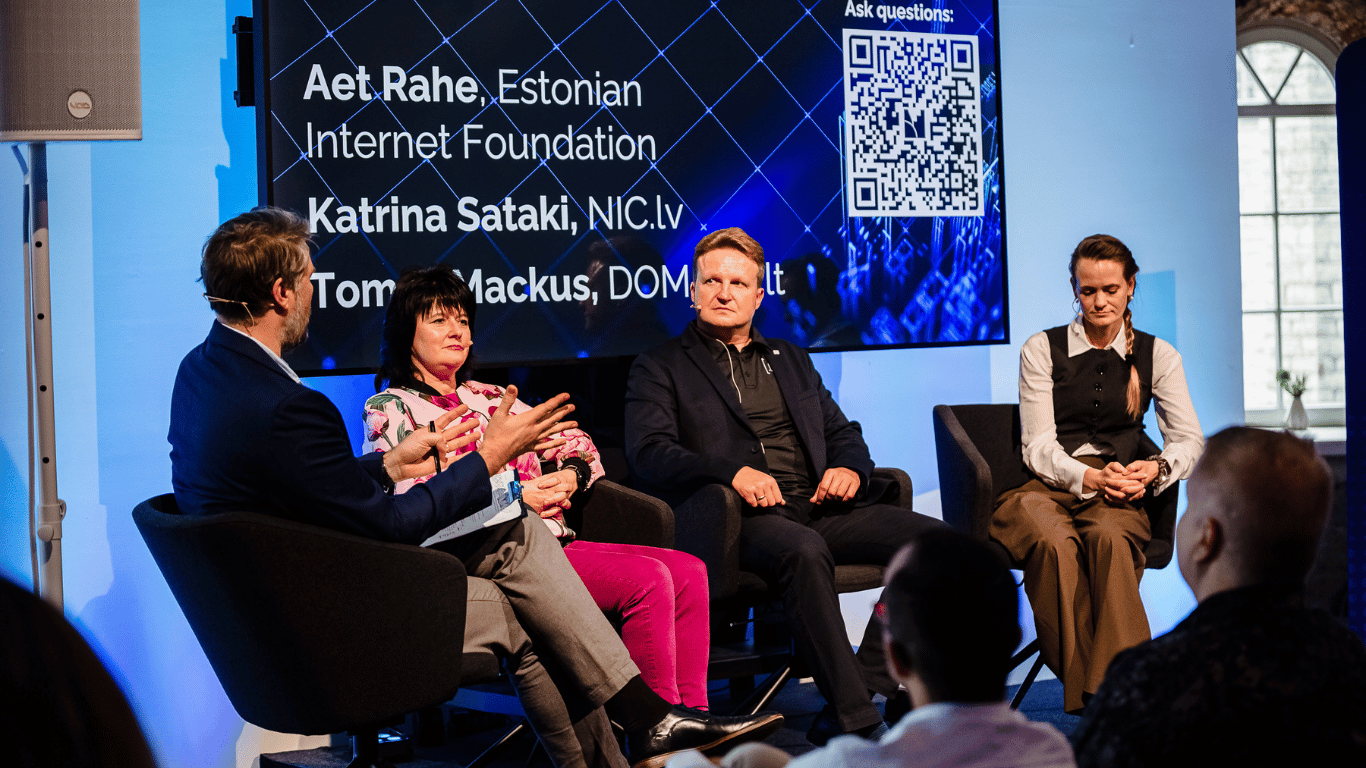
Speakers:
Aet Rahe (Estonian Internet Foundation)
Katrīna Sataki (NIC.LV)
Tomas Mackus (DOMREG.LT)
Representatives from the Baltic states shared their experiences in promoting public education on DNS and digital safety.
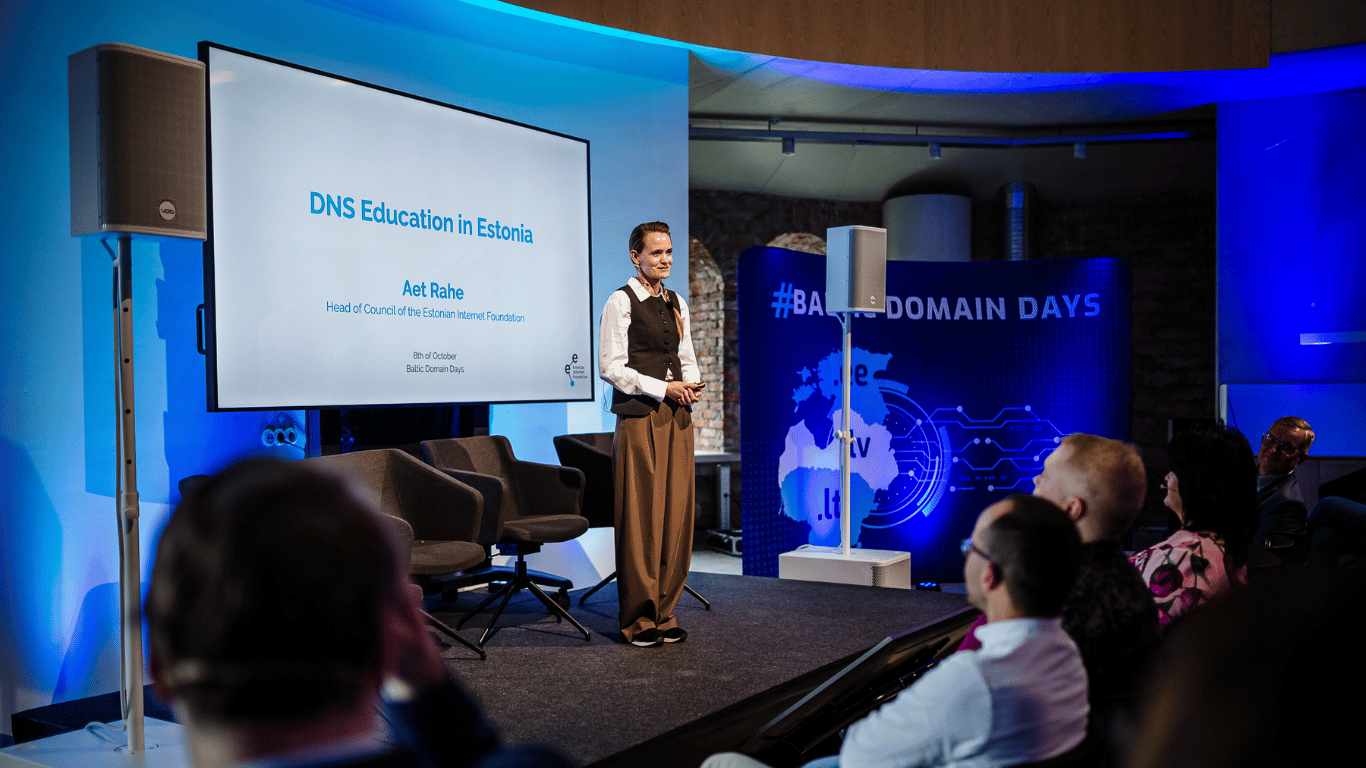
Aet Rahe spoke about Estonian projects that promote digital skills among children and youth, including “Cyber Study,” “Digital Self-Defence,” and the “Scratch Olympiad.”
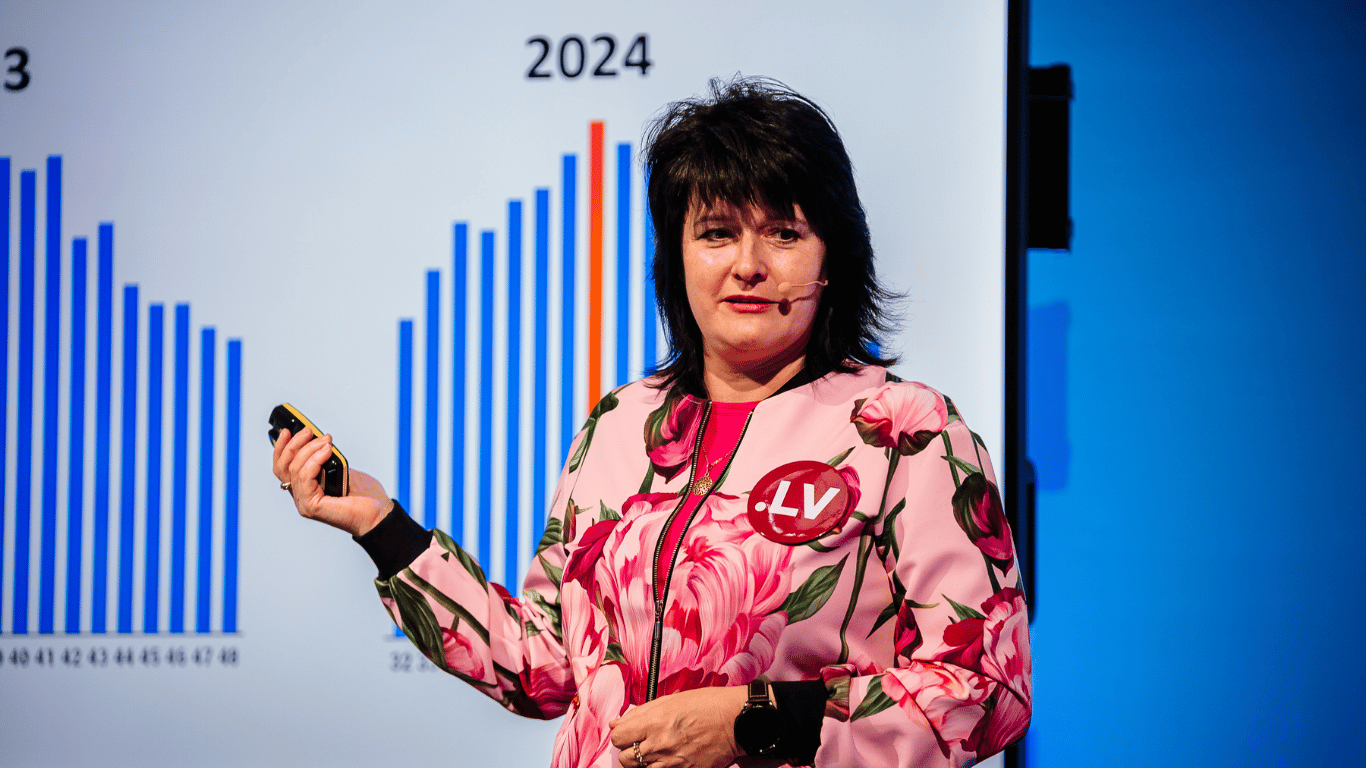
Katrīna Sataki noted that in Latvia, young people often use social networks as their primary form of digital identity. To address this, NIC.LV launched the “.ID.LV” initiative, which offers a free domain name to every 18-year-old citizen. Schools also organize training sessions to educate students about DNS and online identity
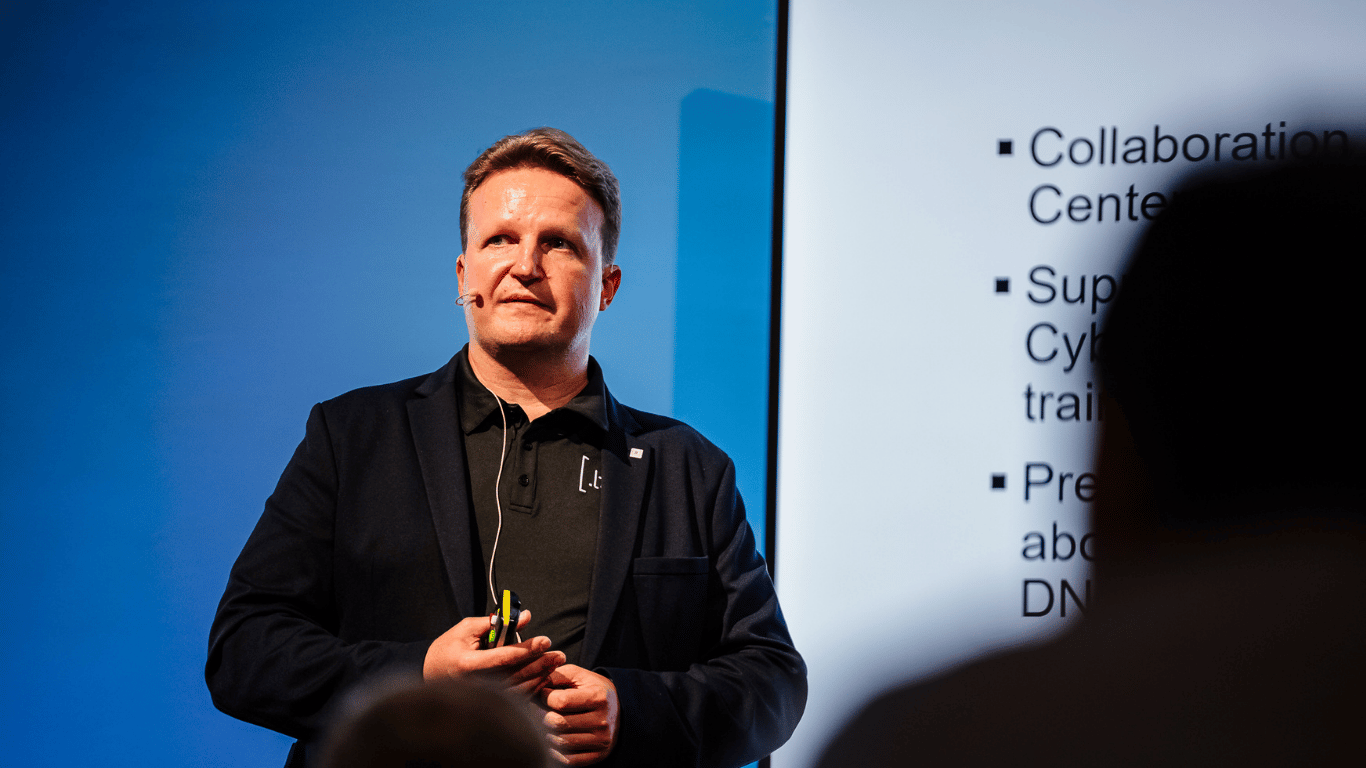
Meanwhile, Tomas Mackus described Lithuania’s DOMREG experience — practical workshops in regional libraries, collaboration with the Patent Bureau, and cybersecurity training for small businesses and police officers.
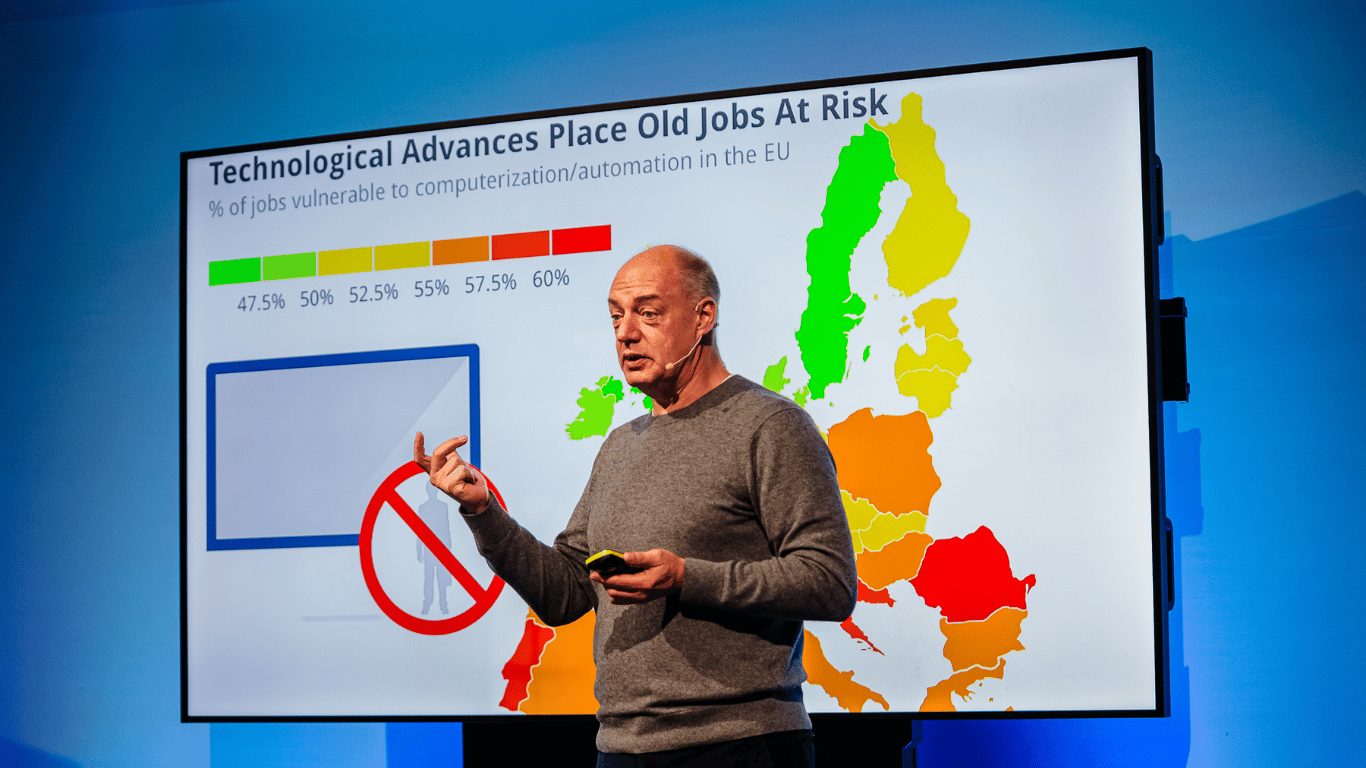
Speaker: Linnar Viik (Digital Innovation Expert, Estonia)
At the close of the conference, Linnar Viik presented Estonia’s new AI Leap program, which integrates artificial intelligence into the education process. The initiative aims to give students and teachers the ability not only to use AI as a tool but also to understand its principles and ethical implications. Viik emphasized that the future of education in Estonia will be based on the principle: “AI as a support for human creativity, not its replacement.”
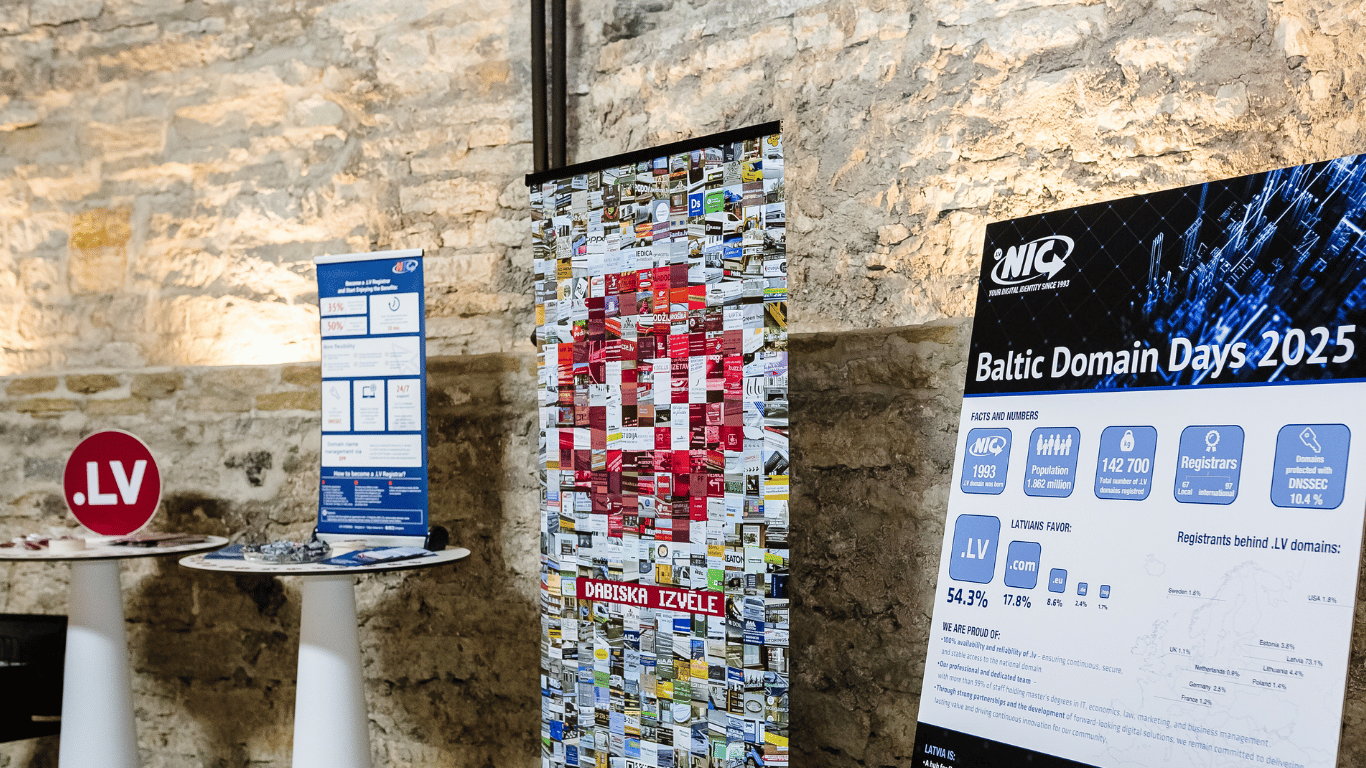
The second day of the Baltic Domain Days 2025 confirmed that the Baltic region is becoming a European model for digital security, education, and innovation. The discussions revealed a shared understanding — that security and digital independence cannot exist without an educated society and responsible technology management.
A big thank you to .EE for organizing an excellent event, and to ICANN and Blackwall for their support and professional contribution to a safer and more open internet future.
PHOTO: Karolin Köster